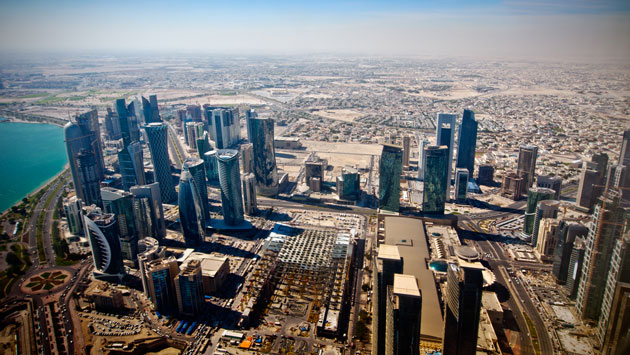Avoiding litigaton in Qatar
Whether it is a multi-billion dollar investment dispute, or a high-tech commercial contract or a shipping deal gone wrong, there are key themes that emerge in litigation and international arbitration. Professor Khawar Qureshi QC, cites some recent examples from the GCC that serve as ample warning for businesses in the region.

For most businesses, the main motivation for agreeing a deal with other parties is the commercial gain – profit. Of course, there may be situations in which a potential long-term advantage is given priority over commercial gain, such as building up a relationship which might blossom into a multilevel commercial arrangement, but those are fairly limited.
I will refer to three recent situations which I have dealt with in the Gulf Cooperation Council (GCC) in the past 12 months, which will reveal the shortcomings of deals done in good faith or incomplete documentation.
An infrastructure project
I was representing a state that had entered into an agreement, one potentially worth hundreds of millions of dollars, which had a contract dispute with regards to performance.
When I reviewed the documents, some worrying features were apparent. The contract had been entered into with a company that did not exist – no one had done any due diligence on the counter party. The contract had been drafted by a lawyer for the counter party, and unsurprisingly was one sided. The state’s lawyers had also been given very little time to review the contract, add to that the state officials had kept very little documentation.
In the GCC, doing business with a handshake is still very common.
Fortunately, we managed to have the claim dismissed on the basis that the claimant did not exist as a matter of law, and so there was no binding agreement. However, if the due diligence had been done, it is likely the contract would never have been entered into. If the claim had not been dismissed because of the one-sided nature of the contract, the state potentially exposed to a claimed liability of up to USD100 million (QAR364 million).
A banking dispute
In another case, a share purchase agreement for a bank to sell one of its assets gave rise to a dispute. Both sides had been instructed by well-known international law firms and the amount at stake was around USD200 million (QAR728 million). The key question was whether a senior representative of the bank had entered into an oral agreement which had an effect very different to the carefully drafted written agreement between the two parties. The oral agreement was not supported by any documents. It was a classic case of the word of one person against another.
Such cases are increasingly rare internationally, however, in the GCC as well as a few other jurisdictions, doing business with a handshake is still very common. Much emphasis is placed upon custom, trust and keeping to one’s word before God. In the modern world, it is very difficult to persuade people unfamiliar with the customs and traditions of the Middle East that people can agree to do something worth huge amounts of money, or even agree to adjust a very carefully drafted contract over coffee in the majlis.
In that case, a settlement satisfactory to both sides was achieved, not least perhaps because the prospect of being cross-examined (a process unique to legal systems such as England) was less than attractive for some of the parties.
Joint venture agreements (JVA)
A GCC party sought advice before entering into a complex high-value long-term JVA with a multinational corporation. This in itself is not as common as it should be in the GCC, whereas in the United States (US) or the United Kingdom (UK) directors would probably be sued for negligence if they failed to take legal advice. Nevertheless, in this instance, a review of the draft agreement made it clear that the foreign party was trying to exclude potential advantages that my client would have if the contract were governed by the law of their country.
The draft agreement also sought to reduce financial benefits for the GCC party, as well as limit the liability of the foreign party. Following extensive negotiations, the foreign party backed down on almost all of the points in the draft, which, if legal advice had not been sought, might well have ended in a binding agreement.
While it is easy for someone such as myself to draw comparisons between the approach to legal agreements and disputes in the GCC and the UK or Russia or the US, the reality is that GCC states are undergoing a massive cultural transformation. A vital part of that process is being aware of the need for sound legal advice, or face the risk of having potential rights denied, and equally badly, of facing costly claims.
Like this story? Share it.
-
Q reader





